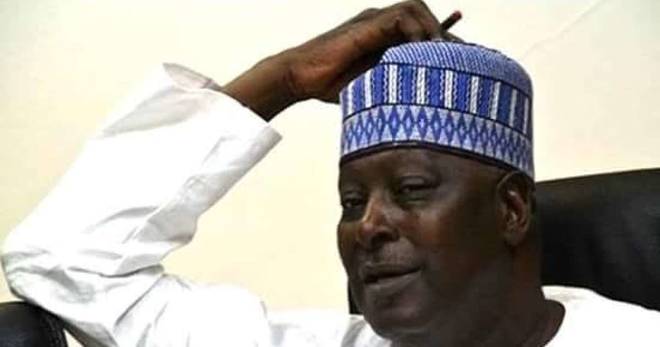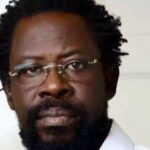Justice Jude Okeke of the Federal Capital Territory (FCT) High Court, Abuja on Tuesday fixed October 16, 2019, for ruling on an objection raised by the defence team of Babachir Lawal on the admissibility of electronic evidence.
This evidence, according to a statement from EFCC spokesman, Wilson Uwujaren, comprises a compact disc, print out from the disc and the digital forensic laboratory report, which connect the former Secretary to the Government of the Federation to Josmon Technologies, a company which is standing trial with him as a defendant.
Uwujaren said the items and the forensic report were presented by the second prosecution witness, Fatima Asabe Umar, a certified access data examiner with the Economic and Financial Crimes Commission (EFCC).
He said, Lawal, the first defendant and his younger brother, Hamidu David Lawal, Suleiman Abubakar, Apeh John alongside two companies, Rholavision Engineering and Josmon Technologies, are facing prosecution by the Economic and Financial Crimes Commission (EFCC) on a 10-count amended charge, bordering on fraud, diversion of funds and criminal conspiracy to the tune of over N500million.
The defence had raised objection to a compact disc alongside the print out from the disc which shows how information linking Babachir to Josmon Technologies was extracted from the iPhone of one Mr Gulani, using a cellebrite camera and burnt into a disc
Offem Uket, the prosecution counsel, while responding to the objection observed that “What governs admissibility of a statement contained in a document, produced by computer such as a disc and its print out is Section 84 of the Evidence Act.”
He clarified that electronic records such as a disc has to be tendered in the form of a print out which the prosecution did.
On whether the prosecution should back up the electronic evidences with certificate of authentication, Uket said the prosecution was not supposed to produce such certificate since Asabe, the prosecution witness has testified orally on what she did as a forensic expert.
Especially as she mentioned the equipment and devices he used in extracting messages from the iPhone, as well as having described the condition of the iPhone as being in a ‘perfect working condition,’ he noted.
Given the good condition of the printout and the disc, Uket said it was no longer necessary for the witness to produce a certification.
The prosecution counsel further pointed out that Section 84 (20) of the Evidence Act provides two methods, which are by oral evidence or by certification of authentication.
He argued that the report was meant to be admissible in evidence and does not need to be certified under the Evidence Act.
As a public document, he said it is original and does not need any certificate to authenticate it, the EFCC statement noted.

 Join Daily Trust WhatsApp Community For Quick Access To News and Happenings Around You.
Join Daily Trust WhatsApp Community For Quick Access To News and Happenings Around You.


